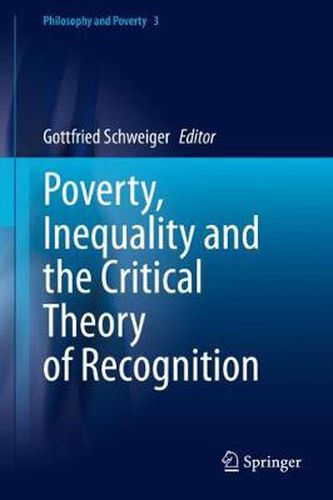Readings Newsletter
Become a Readings Member to make your shopping experience even easier.
Sign in or sign up for free!
You’re not far away from qualifying for FREE standard shipping within Australia
You’ve qualified for FREE standard shipping within Australia
The cart is loading…






This title is printed to order. This book may have been self-published. If so, we cannot guarantee the quality of the content. In the main most books will have gone through the editing process however some may not. We therefore suggest that you be aware of this before ordering this book. If in doubt check either the author or publisher’s details as we are unable to accept any returns unless they are faulty. Please contact us if you have any questions.
This book brings together philosophical approaches to explore the relation of recognition and poverty. This volume examines how critical theories of recognition can be utilized to enhance our understanding, evaluation and critique of poverty and social inequalities. Furthermore, chapters in this book explore anti-poverty policies, development aid and duties towards the (global) poor. This book includes critical examinations of reflections on poverty and related issues in the work of past and present philosophers of recognition. This book hopes to contribute to the ongoing and expanding debate on recognition in ethics, political and social philosophy by focusing on poverty, which is one highly important social and global challenge.
If one believed that the theme of recognition had been theoretically exhausted over the last couple of years, this book sets the record straight. The central point of all the studies collected here is that poverty is best understood in its social causes, psychic
consequences and moral injustice when studied within the framework of recognition theory. Regardless of how recognition is defined in detail, poverty is best captured as the absence of all material and cultural conditions for being recognized as a human being. Whoever is interested in the many facets of poverty is well advised to consult this path-breaking book.
Axel Honneth, Columbia University.
$9.00 standard shipping within Australia
FREE standard shipping within Australia for orders over $100.00
Express & International shipping calculated at checkout
This title is printed to order. This book may have been self-published. If so, we cannot guarantee the quality of the content. In the main most books will have gone through the editing process however some may not. We therefore suggest that you be aware of this before ordering this book. If in doubt check either the author or publisher’s details as we are unable to accept any returns unless they are faulty. Please contact us if you have any questions.
This book brings together philosophical approaches to explore the relation of recognition and poverty. This volume examines how critical theories of recognition can be utilized to enhance our understanding, evaluation and critique of poverty and social inequalities. Furthermore, chapters in this book explore anti-poverty policies, development aid and duties towards the (global) poor. This book includes critical examinations of reflections on poverty and related issues in the work of past and present philosophers of recognition. This book hopes to contribute to the ongoing and expanding debate on recognition in ethics, political and social philosophy by focusing on poverty, which is one highly important social and global challenge.
If one believed that the theme of recognition had been theoretically exhausted over the last couple of years, this book sets the record straight. The central point of all the studies collected here is that poverty is best understood in its social causes, psychic
consequences and moral injustice when studied within the framework of recognition theory. Regardless of how recognition is defined in detail, poverty is best captured as the absence of all material and cultural conditions for being recognized as a human being. Whoever is interested in the many facets of poverty is well advised to consult this path-breaking book.
Axel Honneth, Columbia University.